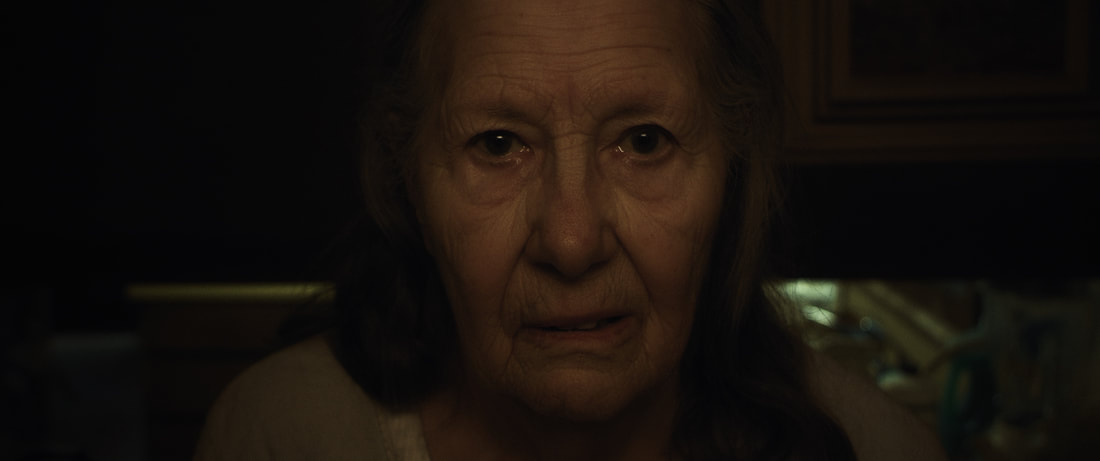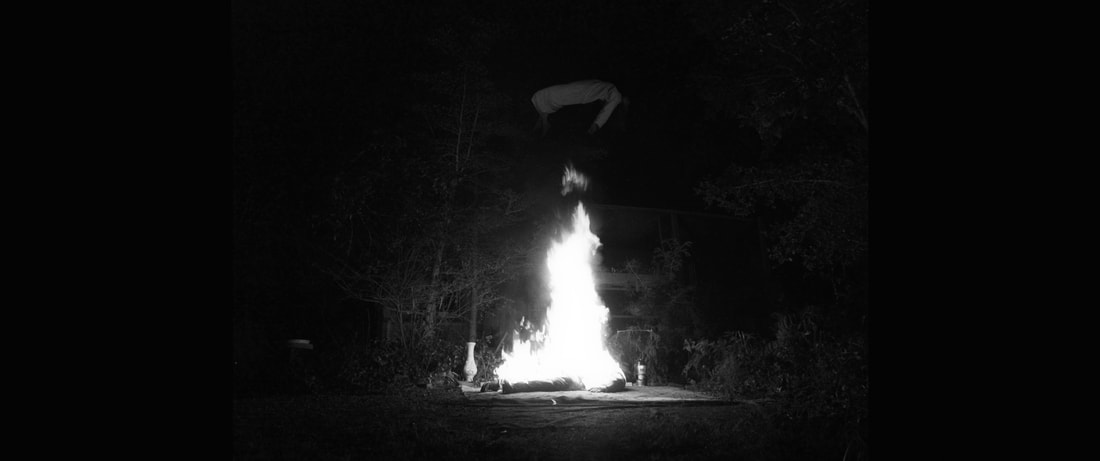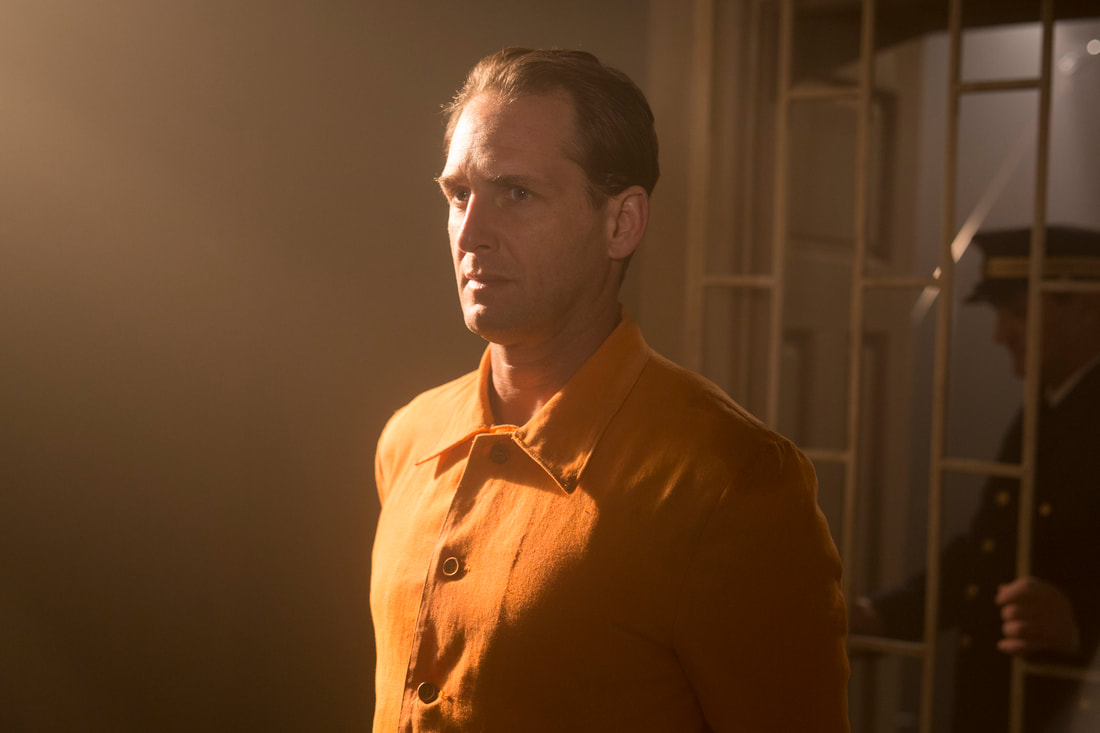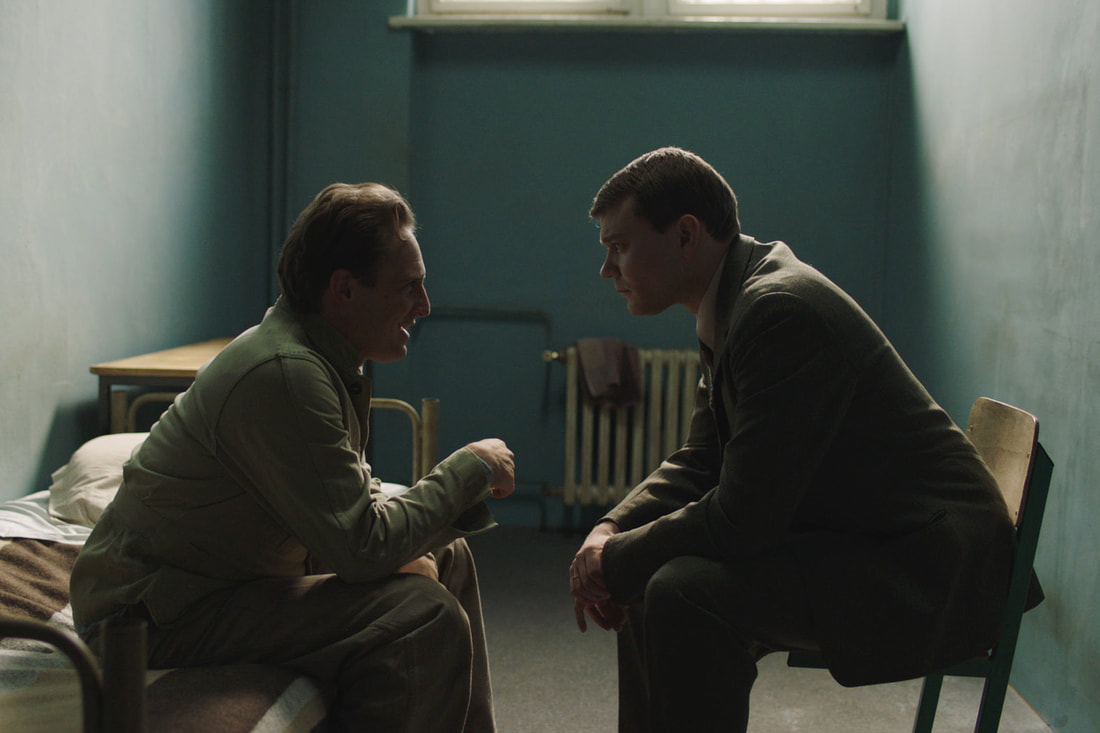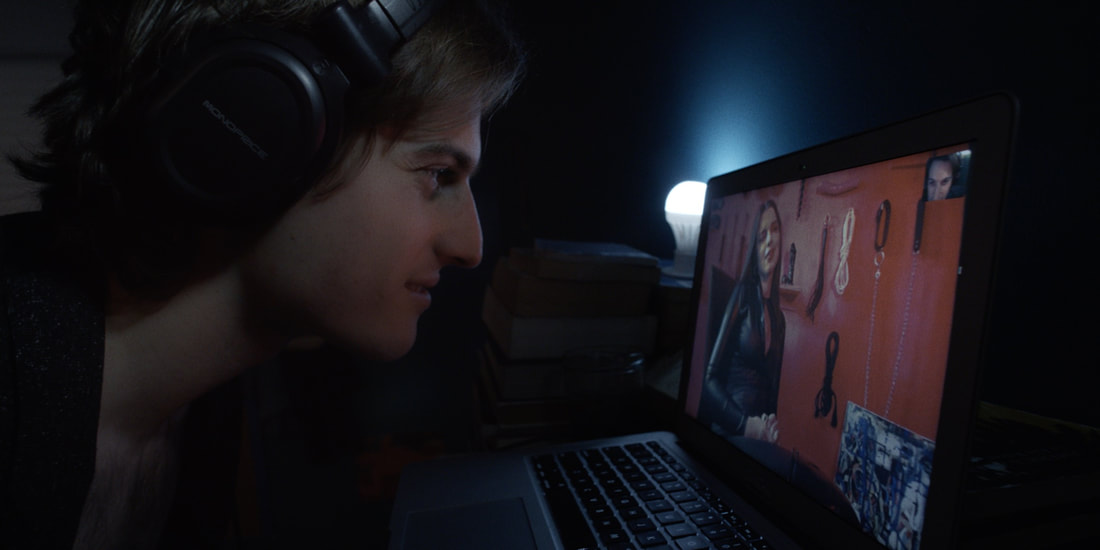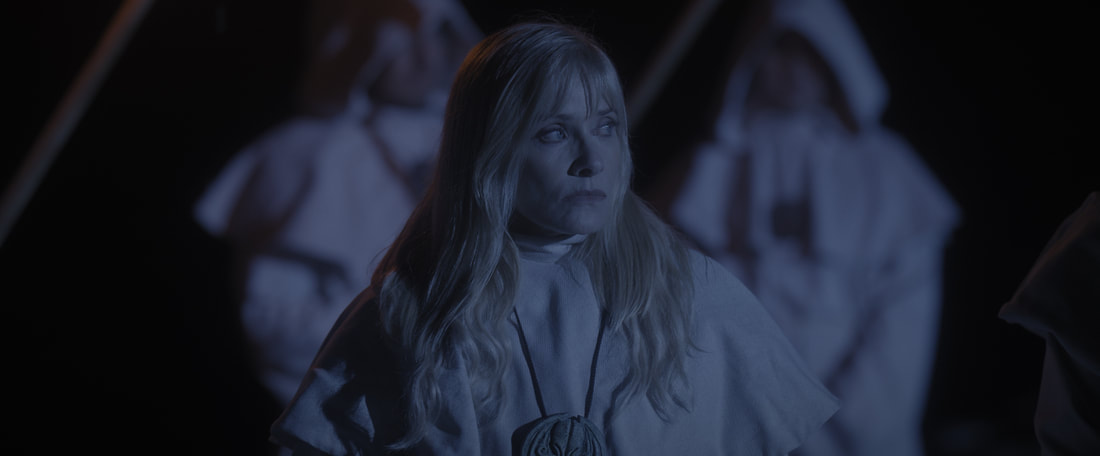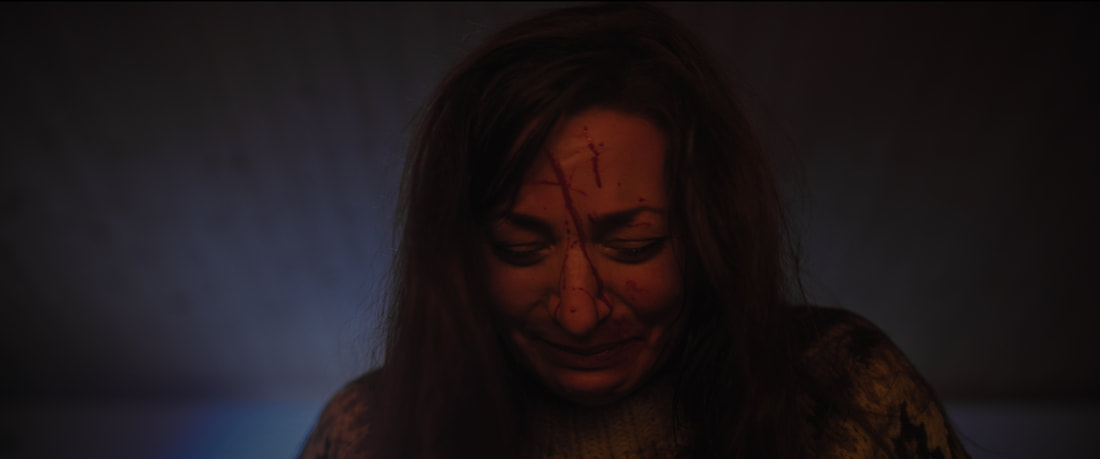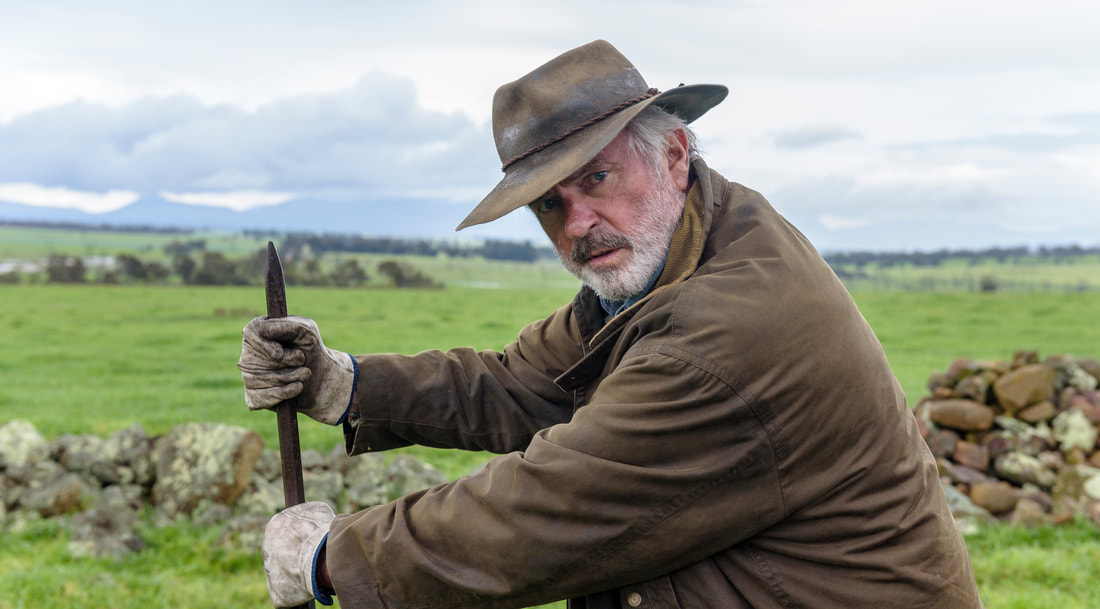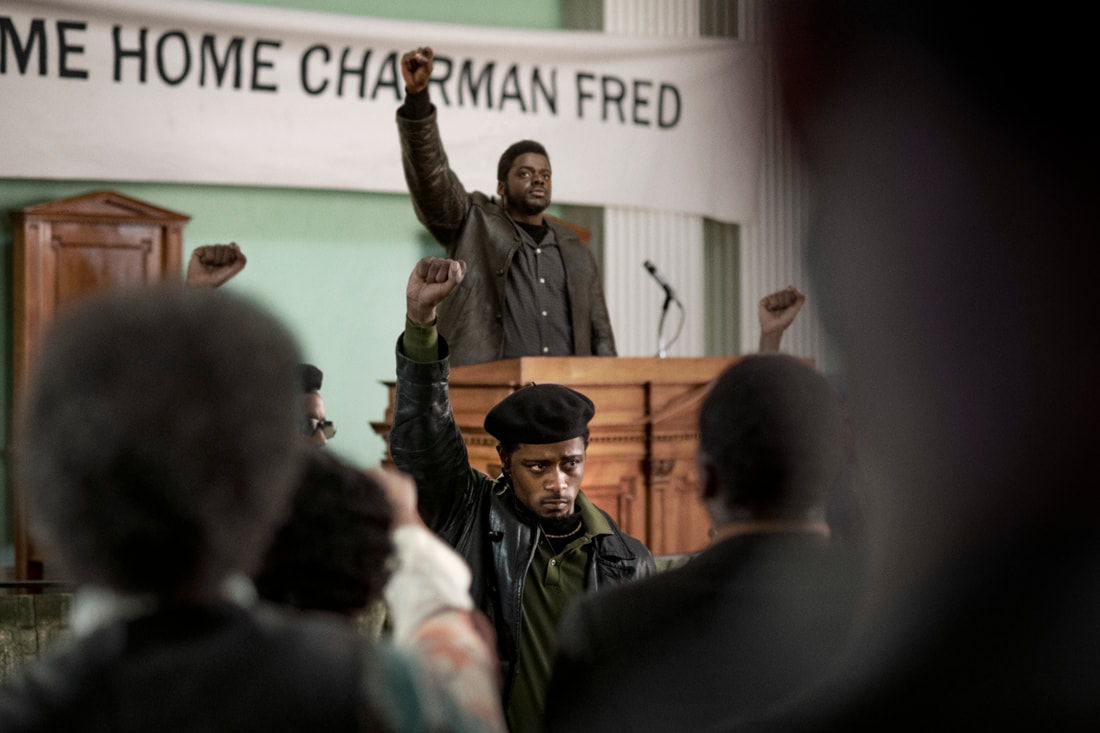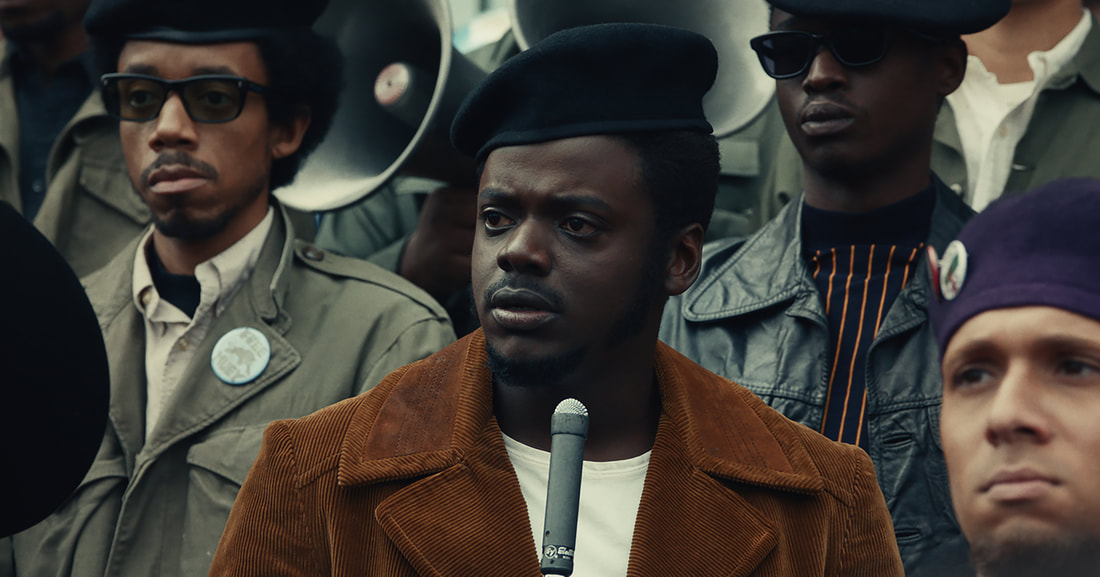|
Review by Camden Ferrell
French Exit is the newest comedy from writer/director Azazel Jacobs, and it had its premiere at the 2020 New York Film Festival. It is based on the novel of the same name by Patrick deWitt. While it certainly has its own unique quirks, this is a movie that can often be too absurd for its own good.
Frances is a socialite who faces insolvency after squandering away her inheritance. She decides to take the remainder of her money and move to Paris with her son and bizarre cat. In Paris, they mull over their past while also meeting new and exciting people in their new environment. This is a simple premise with one unique twist that could have been incredibly compelling. Unfortunately, it doesn’t fully realize its potential. Jacobs’ script is idiosyncratic if nothing else. It features some fairly witty dialogue that can often be overshadowed by peculiar and out of place exchanges. More than anything, the script doesn’t really flow naturally enough to achieve the surreal tone of the film, and it hinders the movies ability to transcend into profound and eccentric territory. The one main highlight of the film is the undeniably passionate leading performance from Michelle Pfeiffer. She is a powerhouse of an actress who does a fair amount with her role despite how limiting it initially seems. Her delivery is convincing, and her timing and chemistry is great. Unfortunately, she isn’t always provided the resources by this movie to truly be amazing. The film co-stars Lucas Hedges as her son. While he is fairly decent alongside Pfeiffer, his performance doesn’t really amount to anything memorable.
The movie is nearly two hours long, and it never really feels like it earns that run time. The pacing can be so sluggish at times, and it truly feels that this movie could have been better if it had been under ninety minutes. There is a consistent inconsistency in how the scenes transition and flow. The odd pacing is one of the main things hindering the film’s enjoyability.
While Jacobs is known for his offbeat and eccentric humor, this is a movie that has a hard time locating any of that same charm. It feels like an overt attempt to be witty and zany, but it comes off as superficial and fairly uninteresting throughout. Not to say it’s a bad film, but a lot of the humor and quirks do not land like they were intended to. This is a movie that well-made in its cinematography, blocking, and production design. Unfortunately, the stylistic choices of the film are undermined by its lack of substance. Its themes are muddled in the messiness of its script, and it’s a film that is more forgettable than objectionably bad. French Exit may appeal to those who heavily identify with Jacobs’ brand of comedy, but it won’t do much for the average viewer. It features a great leading performance while everything else falls pretty flat. French Exit is in theaters February 12. Rating: 2.5/5
0 Comments
Review by Sean Boelman
Slow-burn indie horror has become quite the phenomenon in recent years, and it is always exciting to see what young filmmakers are able to do with the genre despite their limited resources. Jordan Graham’s Sator certainly shows some interesting craft, and even if the script could have used a bit of tightening, the atmosphere is strong enough to make it worth watching.
The movie follows a family living a secluded lifestyle that finds themselves tested when they begin to realize that there is a possibly malevolent supernatural force guiding their lives. And even though the film’s rustic setting does come into play, this isn’t a typical woods-bound horror flick, instead opting for something more psychological. Undoubtedly the strongest aspect of the movie is its atmosphere, largely defined by some of the eerie imagery used in the film. Although a majority of the strongest moments come in the final third, there is just enough creepiness in the first hour to keep the viewer invested in the mystery of what is going on. Graham is obviously trying to do something ambitious here, with the inclusion of home video footage to create different timelines being one of the most interesting choices, but it doesn’t always pay off. It tries to straddle the line between abstract and scary but can’t strike the right balance between the two.
At times, it does feel as if the narrative is beginning to meander. Rather than trying to tell his story in a straightforward way, Graham creates a complex web of family history. However, the world-building here is not strong enough to support such an expansive narrative and as such, the low budget begins to show itself.
The character development in the movie is also significantly lacking. Although the things that the film has to say about family are interesting, the characters come across as extremely distant. And while there is a purpose to this, it also prevents the audience from forming any sort of emotional connection to the story. The cast of the movie does a good enough job in their roles, but it’s nothing particularly spectacular. The fact that none of the actors are big names keeps the intimate tone of the film up, but they also don’t quite have the confidence to really drive the movie, especially since so much of the film is dependent on subtle mannerisms. Sator is an interesting genre picture, but it’s not as consistent as one would like. A few great moments and effective execution allow this to be entertaining even if it doesn’t meet its ambitious goals. Sator is now available on VOD. Rating: 3/5 Review by Dan Skip Allen It's been three years since the premiere of Murderous Trance at the Warsaw Film Festival in 2018. Ever since then this film has sat on a shelf. After watching it, it makes sense because this film is a nonsensical mess. It's almost incoherent to understand at all. A film that is trying to be good is rarely so bad. Originally titled Guardian Angel, this film needs a savior of its own. The basic story of the film is about a man who robs a couple of banks in the 1950s in Denmark. A local hypnotist, Bjorn Schouw Neilsen (Josh Lucas, Glory Road), is linked with the robberies and murders that followed. A local lawman, Anders Olsen (Pilou Asbæk, Game of Thrones), is tasked with investigating these strange robberies and accompanying murders. This is a strange set of circumstances for sure. A local doctor, Dr. Dabrowski (Rade Serbedzija), helps make sense of this mystery. This film is based on real events. So no matter how crazy this story sounds, it's based in reality. The director Arto Halonen has enlisted some help in writing the script, but all the help in the world was not going to make this story make sense to me. It even seemed confusing to the characters who were in the film. The actors seemed a little out of it while delivering this ridiculous dialogue. So that's no good for those who have to watch this film. The look of the film is not good either. It's set in the aftermath of WWII, but it is filmed inside supposed prison cells and rooms such as offices and houses. These could be anywhere or on a soundstage for all I know. There was no distinction on the location of these places even though the film takes place in Denmark. This film could take place anywhere. The filmmaking style doesn't make sense from this point of view.
I am a fan of a good WWII-set film, but this film is bad all-around, from the delivery of this nonsensical dialogue to the filmmaking style of the film. This movie is just not put together very well at all. Maybe it didn't have a big budget and that affected the overall production. Who knows? The biggest clue about this film though is the fact that it didn't come out for three years after it premiered. That's always a red flag on the quality of a film. Murderous Trance is now available on VOD. Rating: 1/5
Review by Camden Ferrell
Music is singer/songwriter Sia’s first endeavor in the world of film. She both directed and co-wrote this musically centric film. Unfortunately, this film is an offensive exploitation of the autistic community that is ill-informed and poorly executed.
Zu, is a recovering addict who deals drugs when she is suddenly entrusted with caring for her half-sister after the death of her grandma. Her half-sister is an autistic teenager named Music, and Zu must grow as a person to take care of not only her sister but herself. This is a premise that isn’t terrible in theory, but the results are abysmal in practice. The script, co-written by Sia and Dallas Clayton, is a tonal mess from the start. It lacks any compelling dialogue, and many of its lines come off as inconsistent and inconsequential. The movie doesn’t develop a lot of its characters nearly enough, and its themes are incredibly contrived and half-baked. Sia’s direction also seems to be inconsistent, and it truly makes this film drag on much longer than its story warrants. What the movie truly lacks is an understanding of autism and the proper away to tactfully approach the subject. It’s not subtle in the way it dehumanizes its titular character and how it treats her as a nuisance rather than a person. One could argue this is for the sake of Zu’s development as a character, but there is nothing redeeming in her character to justify how it treats its autistic character.
The acting in this movie is just as messy as the other aspects of the film. Kate Hudson leads the film as Zu. Her acting is bland more often than not, and she isn’t particularly compelling or interesting in any of her scenes. However, Maddie Ziegler delivers one of the most demeaning performances in recent memory as Music. She reduces the character down to some terribly offensive facial expressions and misguided actions that makes you wonder how this was deemed acceptable on set. Leslie Odom Jr. co-stars as Ebo, their neighbor who helps take care of Music. While his performance is the least objectionable of the cast, it is still inconsistent and dull.
The movie features more than one scene of the physical restraint of Music during an episode that is potentially dangerous. It seems this lack of knowledge about the autistic community is present throughout the entire film in smaller quantities. The movie has no interest in exploring the nature of autism. It merely reduces the character to a gimmick to earn cheap sympathy points. It demeans the autistic community and does nothing to advocate or educate. For a film that is musically centered, there is also a surprising lack of music. The music numbers are more spaced out than one would assume. This wouldn’t be a problem if the interweaving narrative between musical numbers was interesting, but that’s unfortunately not the case with this film. The songs themselves are fairly decent throughout, and this is possibly the film’s sole redeeming characteristic. However, it seems that Sia is concerned with being quirky for the sake of being quirky. Her musical numbers are not the profound metaphor for autism that she seems to believe it is. There is a lot of campy style, but no substance to any of the film’s musical numbers. Music is a fever dream in all the worst ways. It is a harmful story that perpetuates a lot of negative stigma facing the autistic community. The movie was made without regard for people with autism, and it merely exploits their condition rather than understanding it and empathetically portraying it. This is a movie that is not worth seeing, even for fans of Sia’s previous work. Music is playing in IMAX theaters February 10 and on VOD February 12. Rating: 1/5 Review by Dan Skip Allen Fish out of water stories can be hit and miss. They capture the magic of a person, animal, or family in a place that is not familiar to them. A lot of writers and directors have tackled this genre of film, but Minari shows a perspective that has rarely been shown before. It's rare to see a film that does something different while also in a subgenre fan have seen before. The Yi family — Jacob, Monica, and their two kids David and Anne — move from Korea to a small town in rural Arkansas to become farmers. They are over their heads from the very beginning of the film. They start as chicken sexters and end up trying to make things work as farmers. It's not as easy as they think. Set in the 1980s, Minari has a great aesthetic of that period. From the clothes and cars, the film is very authentic to the time. Lee Isaac Chung wrote this film basically about his upbringing so it's semi-autobiographical. He includes a lot of things such as peeing in the bed and having the water turned off because they were using too much to water the crops. The struggles this family is going through are relatable for quite a few people around the world, let alone Americans. Not everyone can be described as farmers, but people have struggled with their finances everywhere. Raising kids can be quite hard at times as well. Chung comes from a place people can get behind. I for one can relate to all the struggles that are depicted in the film. One of the aspects of this story is the foreign language this family speaks. Subtitles are used to supplement the dialogue of the film so that it goes back and forth between both English and Korean seamlessly. This helped show the fish out of water aspect as well. It's not everyday Koreans move into a small Arkansas town to become farmers. Even though this film is set up as a dramatic piece of cinema, it also has moments of comedic levity in it. The grandmother character has some funny moments. The family is just out of place in this new home they have moved to. Laughing can be the answer to some ill wills in society.
Along with the script and direction from Chung, the acting by Stephen Yeun and the others is superb. The children, especially Alan S. Kim, are very good in this film. The cinematography is spot on as well. The vistas of rural Arkansas are brought vividly to life by Lachlan Milne. You rarely get to see fields of crops and trees captured so perfectly as in Minari. Minari is quite a piece of cinematic gold. It's a small film from a company that has become synonymous with great small films. As seen in years past, A24's little films have garnered a lot of praise from critics and film fans alike. They just know how to tap into those small subsectors of society. And the filmmakers are very good at telling these small stories that become big in stature. This film checks all the boxes of what I am looking for in films today: dramatic strife, great acting, direction, writing, and cinematography. It touches on so many things I can relate to or have gone through in my life. It's easy to see why Minari has garnered so much praise coming out of the Sundance film festival back in January. This is a film that will get more eyes on it and become a force going forwards into awards season. Minari hits theaters on February 12 and VOD on February 26. Rating: 4.5/5 By Adam Donato Some topics are hard to make a movie about. That doesn’t mean they shouldn’t be made. Due to the world’s necessity for content, there’s so much opportunity for a movie about anything to get made. Almost certainly, there is a movie that represents every aspect of human life throughout the modern age. The new is a scary place to explore, but it is the responsibility of filmmakers to trailblaze. No matter what your movie is about, as long as it is part of the human experience, there is an audience that will be able to relate. PVT Chat is a film about a young man and his obsession with a girl whose profession is to produce interactive pornography over the internet. Small-time actor, Peter Vack, stars along with Julia Fox, who recently made an impression with her role in the hit film Uncut Gems. Ben Hozie basically did everything as he wrote, directed, and edited this film. The subject matter is bold and for that, this movie is to be admired, to a certain extent. The camera is handheld for the majority of the film, which adds to the personal tone and makes the audience feel like they’re seeing something they shouldn’t. Borderline found footage means that the story primarily follows Vack as we see his day to day in a more than intimate fashion. The movie this most resembles is Joseph Gordon-Levitt’s directorial debut, Don Jon: a story about a man who was addicted to pornography. The big difference between these two films would be that pornography has evolved over the years. Cam girls are much more frequent and accessible these days. Audience members are likely to know someone who either uses these sites or works with these sites (no judgement). Before, there was a relationship with the computer, but now, pornography is a relationship with a real-life human being. PVT Chat explores the complications and intricacies inherent to the situation. The best part of the movie is deciding whether or not the film condones or condemns the main character for his obsession and the medium altogether. An activity that is known as shameful is shown openly for all to see. For that, it’s a very uncomfortable experience. If an uncomfortable experience makes a movie bad, then nobody should watch Requiem for a Dream, a notoriously great and disturbing movie. That being said, PVT Chat is not high art. Points for going for it and definitely some food for thought for anyone familiar with the subject.
It is certainly interesting to see movies that explore the uncharted and outrageous territory. Certainly, character-driven and plenty to say, PVT Chat makes for an interesting watch. Explore this subculture of pornography with Ben Hozie at the helm. It will be of note to see where he along with cast members, Vack and Fox, go after this seeing as this picture is so out there. If watching, the best recommendation would be to watch it alone. PVT Chat hits VOD on February 9. Rating: 3/5
Review by Sean Boelman
Cult film icon Barbara Crampton (Re-Animator) has made a name for herself such that her mere presence in a project is enough to pique the interest of genre fans. The Lovecraft-influenced horror flick Sacrifice definitely benefits from her involvement, an overly self-serious movie in desperate need of an added dose of campiness.
The film follows a pregnant couple who find themselves trapped in a sticky situation when they return to one of their hometowns and discover that the locals may have more sinister intentions. It’s a pretty standard combination of cosmic and cult horror tropes, but it clearly wants to be more than it is. Perhaps the biggest problem with the movie is that the pacing is pretty inconsistent. It manages to stick the ending pretty well, but it struggles to keep the viewer’s interest for the first hour or so. A deeper investment in world-building early on could have allowed the more shocking elements that come later in the film to be more impactful. Unfortunately, the movie feels a lot more empty than it needs to be. As a genre, cosmic horror is typically pretty meaningful, even if it isn’t always profound. Everything that this film has to say has been done before (and more successfully), and as a result, any attempts that the movie makes at being deep fall flat.
The character development in the film is also really lackluster. The first twenty minutes set up the relationship between the protagonists, but the movie largely separates them for the rest of the runtime. This undermines any potential emotional connection that the audience could have had to the story.
Sophie Stevens and Ludovic Hughes play the two main characters and they do a less than stellar job in their roles. Hughes’s performance is extremely wooden, and while this is how it is supposed to be in the final thirty minutes of the film, he never has any emotion at any point. Crampton is a highlight in the supporting cast, but she is underused. On a technical level, the movie is mostly strong. There is a really strong atmosphere to the film, and while the budget obviously isn’t very high, the filmmakers do the best that they can with a small scale. It’s nice to see the cosmic horror genre return to its psychological roots rather than the special effects extravaganzas that many of the movies have become. Sacrifice definitely has strong execution, but the story is a bit too run-of-the-mill for it to be especially memorable. Filmmakers Andy Collier and Toor Mian show promise behind the camera, but they need a stronger script to deliver a great film. Sacrifice is now in theaters and hits VOD on February 9. Rating: 2.5/5
Review by Sean Boelman
The one thing that can be said about cerebral sci-fi as a genre is that it is typically consistent in its beauty. Nicholas Ashe Bateman’s The Wanting Mare is no exception to that rule, offering an abundant amount of striking and gorgeous images, even if they don’t build into a narrative that is entirely satisfying or developed.
The film follows two lovers who seek to escape the confines of a society that is seemingly inescapable, hoping that their love is powerful enough to overcome the forces that threaten to tear them apart. It’s an ambitious movie in many ways, but narratively, it’s a lot more conventional and shallow than it would have you believe. It’s clear from the very beginning that Bateman wants his film to tell an intimate story on an epic scale, but he struggles to find the right balance between the two. More often than not, scenes feel like one or the other — either a small, character-driven scene or a grand, operatic one — and as a result, it’s hard to figure out where the emotional connection is supposed to originate. Perhaps the biggest issue with the movie is the fact that the film tries to do too much in its less than ninety minute runtime. Bateman succeeds in making his world feel lived in, but there’s still a lot more to be explored. Additionally, the movie spends more time on the common elements of this world rather than the things that make it truly unique.
That said, the single biggest issue with the film is the character development. Because we are dealing with so many characters over such a long period of time, it’s hard to get invested in any of their arcs. Even the central love story feels telegraphed in a way that is frequently less than satisfying.
The acting in the movie isn’t much better, but this seems to be more an issue of unconfident directing than the actors’ skills. Bateman’s investment in the visual and technical aspects of the film pays off in droves, but this also comes at the expense of the performances which are highly inconsistent and could have used more of a guiding hand. Still, the fantastic visuals are more than enough to recommend this movie. Any given frame in the film could be a work of art thanks to exquisite framing and an eye for designing the shot. And given Bateman’s background in visual effects work, the CGI in the movie is much stronger than average for an independent genre picture. The Wanting Mare has some really strong elements working for it, but the script needed a bit more focus for it to be an effective sci-fi epic. However, filmmaker Nicholas Ashe Bateman’s talent is obvious, and it will be exciting to see what vision he brings to the screen next. The Wanting Mare hits VOD on February 5. Rating: 3/5 Review by Adam Donato Do you like sheep? Then this is the movie for you! Rams is about an old man, played by Sam Neill of Jurassic Park fame, who owns a sheep farm right next to his brother that hasn’t spoken to him in decades. Michael Caton, who plays the brother, reteams with Jeremy Sims (director) after their last film together, Last Cab to Darwin. The film is set in Western Australia and is a remake of Grimur Hakonarson’s 2015 film of the same name. Is Rams a good remake of a movie? Obviously, one does not have to be super well versed in the subject matter of a movie to be entertained by it. Some of the best movies introduce the audience to a whole world they didn’t previously know the ins and outs about. A good movie can be made about anything. Rams is not one of them. Now the movie is devoid of quality. When remaking a well received film, it’s difficult to make a movie that justifies its own existence, but it also has the added benefit of a template of what they should be doing. There’s definitely a good movie that can be made for some story. Sheep are, at best, a niche interest, so making a movie about them is a challenge when trying to appeal to audience members who only know that sheep make wool and say “baaa”. In this respect, it succeeded. The sheep are the most interesting part of the movie. Seeing them run around and be sheep is cool, not to mention learning about everything that goes into the sheep industry is interesting. The sheep are not the problem. Remember the guy who is just blown away seeing that dinosaurs travel in herds in Jurassic Park? Even back in the early nineties, Neill was an angry old man. Although this time he is without the Spielberg charm that was given to his “I hate kids” character. In Rams, he’s just a quiet, angry guy, and not in the cool “Ryan Gosling in Drive” kind of way. The only time he shows any emotion is when he is alone with his sheep. He’s not funny and his emotional scenes do not land.
The rest of the cast does a much better job. There is a lot of personality in the other sheep farmers. The love interest and the villain are handled so well. You’re rooting for her as much as you want that weasel to lose. The movie is shot very well. It must be hard to make a whole bunch of shots of sheep look good. Some moments in the movie work, but it’s fair to think that the original had handled things better. Also, don’t be ashamed if you had to look up the difference between a ram and a sheep. That is not necessary knowledge. If one thinks sheep are cute, it would be a morally conflicting recommendation. To the hardcore fans of sheep, it’s your time to shine. While it is a nice ode, it’s also quite the dour picture. There are some funny moments here and there, but not enough to call it a comedy. It's decently enjoyable though, and certainly a memorable watch. Rams is exactly what the poster looks like it is. Two old dudes and an animal, the animal, sheep. Maybe it was a ram. It did have the horns. Rams hits VOD on February 5. Rating: 2/5
Review by Dan Skip Allen
Judas and the Black Messiah is the seventh film about the Black Panthers. The film focuses its lens on the Chicago branch of the party, specifically its enigmatic leader Fred Hampton. Hampton is played terrifically by Daniel Kaluuya (Get Out, Black Mirror) in an Academy Award-worthy performance.
Hampton is trying to recruit new members for his cause, so he goes all over the city to do speeches. This puts a red flag on him and the FBI has been alerted of his presence in the civil rights movement. A two-bit car thief, William O'Neill (Lakieth Stanfield), has been captured by the FBI and is offered a plea deal. As part of the deal, he is supposed to infiltrate Hampton's crew. He reports to agent Roy Michell (Jesse Plemons) who has it out for Hampton. Shaka King, the director of the film, has done a great job bringing the viewer right into the heart of the film. Hampton's life with his wife, Deborah Johnson (Dominique Fishback, Project Power), and his cause is everything that matters to him. Hampton is an enigmatic and electric human being when he is speaking to crowds of his followers. That is the strong part of the film. King doubles down on Hampton and O'Neill throughout the film. It was incredible to see inside this relationship and world.
Judas and the Black Messiah is the second film in recent months to focus on problems with the police in Chicago after The Trial of the Chicago 7. The aesthetic of the two films matches very closely. This period is very distinct and the clothes, cars, and the surrounding buildings and offices have to match. This period in U.S. history was full of strife. The police have a mission to eliminate the influence people of minority have in the country. Mayor Daly saw to that himself.
The strengths of the film are the embedding of characters and how they work together. The ensemble cast is littered with young but talented performers led by Kaluuya, Stanfield, Plemons, and Fishback, who are all terrific in their roles. They all play their parts to bring the viewer into this world. The dialogue works as well to bring the story full circle. The speeches from Hampton are amazing to listen to and his leadership comes out in a lot of one on one conversations. Period piece films can be sometimes hit-or-miss. Judas and the Black Messiah is a hit anchored by great acting, production design, and script. This period is brought vividly to life by King and cinematographer Sean Bobbitt. Everything in this film worked for me. At a time in history where black people are having problems with the police, a lot of people will be able to relate to this story first-hand. Similar things are on the news every week in the country. With the extended Academy Awards deadline, this film will surely qualify for some Oscars. It deserves any awards it has coming its way. Judas and the Black Messiah hits theaters and HBO Max on February 12. Rating: 4.5/5 |
Archives
April 2024
Authors
All
|
|
|
disappointment media
Dedicated to unique and diverse perspectives on cinema! |



